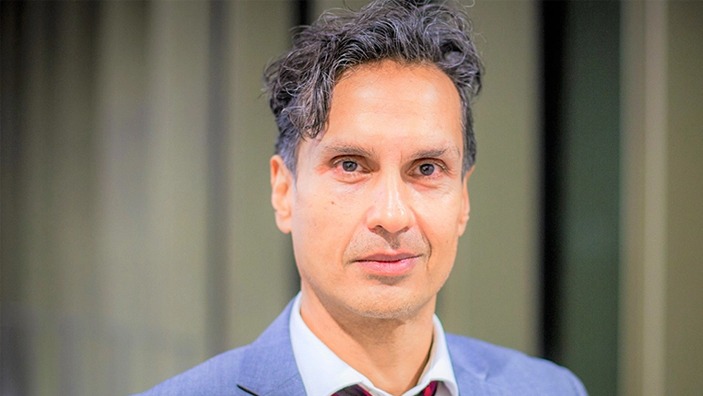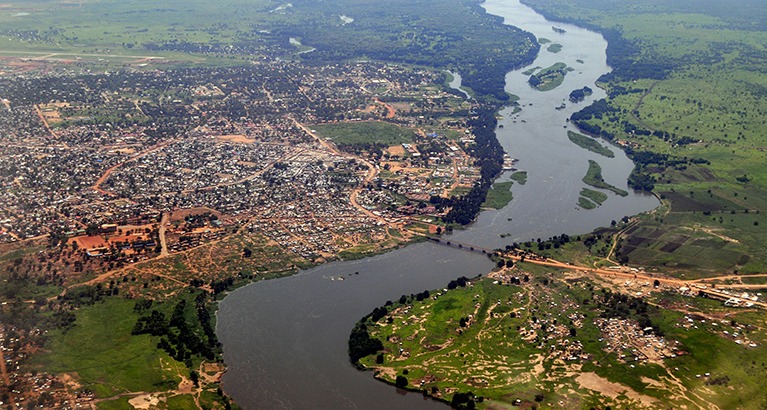
Intermediary organisations play a key role in global sustainable development, and there has been extensive research into how these groups support countries and local regions in this endeavour. But how do clusters of organisations – rather than individual entities – act as intermediaries to build development capacity through local institutions? This has been an unexplored area.
Research published in the journal Organization Studies develops a new model to show how such clusters facilitate local capacity-building. This is done through collaboration among these groups and host national governments that creates a contextual bridging process that adapts development building initiatives to local needs. The findings have significant implications for assessing and improving the effectiveness of international development aid.
The research is co-authored by Giulia Cappellaro, a PhD graduate of Cambridge Judge Business School who is now an Associate Professor at Bocconi University in Milan, Valentina Mele, Associate Professor at Bocconi, and Shahzad (Shaz) Ansari, Professor of Strategy and Innovation at Cambridge Judge Business School.
How public, private and IGOs work together to overcome development obstacles
“There are very complex political and organisational challenges to international sustainable development, so the role of IGOs (inter-governmental organisations) such as UN agencies is often pivotal in overcoming these obstacles,” says Shaz.
“While there is extensive research on how public, private, and third-sector organisations coalesce to address grand challenges, we have developed a better understanding of the dynamics in which different international organisations come together to strengthen the social fabric in underdeveloped regions,” adds Valentina.
Giulia notes: “While the UN and other IGOs use their prior experience in undertaking new initiatives, we show the importance of adaptation to local situations rather than an unquestioning adherence to repetition.”
While some IGOs work directly at the local level, others such as the UN and the World Bank usually work with the host national government. This requires what the researchers call a nuanced approach in interorganisational collaboration that aligns global mandates to local realities with political and cultural sensitivity to specific local conditions and needs.
The research develops its model by examining a UN governing arrangement known as Delivering as One, which was designed to create local clusters of organisations to help institutional capacity-building in developing countries. Delivering as One established 8 local UN clusters during its pilot phase from 2007 to 2015 – in Albania, Cape Verde, Mozambique, Pakistan, Rwanda, Tanzania, Uruguay, and Vietnam. Though the design of these pilots was similar, the 8 clusters showed extensive variations in terms of developmental capacity-building, and this provided a window for the research to explore the different dynamics of interorganisational collaboration.
How more effective UN clusters facilitate local capacity-building
Specifically, the research found that the more effective UN clusters – in Tanzania, Rwanda, Vietnam and Mozambique – facilitated local capacity-building through 4 key bridging mechanisms:
- amalgamating operations across UN agencies to create a more unified and streamlined approach for interacting with host countries
- developing a more cohesive collective voice among the cluster organisations to foster trust with local stakeholders while aligning member groups
- sharing authority with local stakeholders to align work with local needs, fostering ownership and sustainability
- facilitating local calibration of interorganisational collaboration, thus allowing clusters to “tailor their strategies to the unique political, social, and economic conditions of the host environment”
“Rather than assuming that co-operative relationships are automatic, our findings underscore the importance of carefully aligning the interests and strategies of international organisations with those of host governments,” says the research. “Creating a trust-based relationship with governments enables intermediary clusters to advocate effectively for the design of policies on sensitive political issues.”
Grand challenges like climate won’t be solved through national approaches alone
The study’s theoretical context revolves around grand challenges (which include climate change, poverty, health and crime) that span national or sovereign boundaries. These cannot be tackled effectively through separate national approaches alone, so transnational forms of governance are increasingly needed. While such transnational groups sometimes rely on repetition and thus “lean towards a one-size-fits-all approach”, the research emphasises the importance of local flexibility.
The study’s methodology included 115 semi-structured interviews with a variety of people involved in the projects: representatives of the United Nations Development Group, donor countries, and local UN clusters in each of the 8 countries. They were asked about the challenges faced in collaborating, their perceptions of the capacity-building outcome, and their reflections on the reasons for such outcomes.
Effective UN clusters adapt governance to local needs
The 4 countries deemed by the researchers as more effective adapted the UN’s centrally prescribed governance design to local needs in a way that improved the teams’ ability to plan and speak with a “coherent mandate aimed at serving the host country” – including the setting of strategic priorities ranging from economic development to gender equality.
Organisations in these more successful clusters “present themselves as brokers of proven technical solutions that have been tried and assessed, thereby gaining credibility with local partners and highlighting their competitive edge over other development actors,” the research concludes. “To become effective participants in the host country, the UN clusters’ perceived role as independent partners must complement their extensive and diverse technical expertise with proven efficacy.”
This often took time and patience to develop, prompting an interviewee in Mozambique, one of the successful countries, to cite an African proverb: “If you want to go far, go alone. If you want to get better results, you know, go slower.”
“Planning over time shifted from being a collection of the efforts of individual organisations to a platform for the exchange of solutions, perspectives and targets,” said a respondent from Tanzania. “Agencies don’t submit their own plans. They come together and discuss and submit a joint plan. And then they come together and discuss what they’ve done and submit a joint report twice a year, mid-year and at the end.”
In the less effective clusters, some interviewees said that supposed joint documents were mostly a “ritual sum of individual plans”. As one interview respondent in Uruguay told the researchers, this exercise seemed bureaucratic and artificial, “because if the agencies were not consulting before establishing joint programmes, it would not be a joint programme.” Another respondent, in Albania, added: “If different programmes are put under the same outcome or output, it does not mean that we have a real joint programme in the country just because we are simply mentioned in the same section of a report.”
Balancing repetition and adaptation in global governance
The authors say that their findings on adapting across different settings a common template for interorganisational collaboration provides “deeper insights into the balance between repetition and adaptation in transnational governance”.
“This has important implications for understanding the effectiveness of international aid. Rather than assuming that co-operative relationships are automatic, our findings underscore the importance of carefully aligning the interests and strategies of international organisations with those of host governments. Creating a trust-based relationship with governments enables intermediary clusters to advocate effectively for the design of policies on sensitive political issues.”
Why climate change poses a particular paradox for transnational action
Shaz had previously examined transnational issues, and especially related to climate change. A paper published in the journal Organization Studies in 2007 argued that, in many complex fields, effective change “needs co-operation from numerous dispersed actors with divergent interests”, thus presenting an “additional paradox of ensuring that these actors engage in collective action when individual interests favour lack of co-operation.” The study examines how the Kyoto Protocol, a treaty adopted in 1997 to extend the earlier UN Framework Convention on Climate Change, came about through overcoming collective inaction.
Another paper, published in Organization Science in 2013, said that transnational co-operation poses challenging managerial issues related to topics like the atmosphere and cyberspace, because tackling these matters require conceptualisation that span national boundaries and transcend levels of analysis. The research focused on the concept of the ‘commons’, which as conceptualised in economics is a “large-scale environmental or social system, consisting of natural or cultural resources and ideas”. The study sets forth a commons logic in transnational issues which involves satisfying 3 conditions:
- Key actors view their fates as being interconnected with respect to a problem issue.
- These actors perceive their own behaviour as contributing to the problem.
- They take collective action to address the problem.
Fiddling while the ice melts? A challenge to society and scholars
Another study co-authored by Shaz, published in 2022 in the journal Strategic Organization, looks at climate change with the provocative title “Fiddling while the ice melts?” – and it poses challenging questions not only for society at large but also for organisational scholars like Shaz and his academic colleagues.
The research says that constructing consensus around climate change at the transnational level is particularly challenging due to the sheer number of players involved, their widely divergent interests, and because there is no “overarching governance system in place at this level that can force sovereign national governments to sign or adhere to any agreement”. To help overcome such policy paralysis, instead of seeking a silver bullet or sole approach to solve the problem, “we need a ‘silver buckshot’ – a portfolio of interventions, together with a social learning process, for understanding the evolving problem and flexible responses to address it”.
“These responses will need to juggle or reconcile several currently contested performance metrics for the betterment of human species, emphasising variously economic development, environmental protection, and societal wellbeing of people around the globe,” the research continues. “Climate change needs to be seen as a collective imaginative resource shaping our individual and collective identities. Climate change can provoke us to examine the long-term implications of our short-term choices, galvanise new thinking about technology, and even challenge us to re-examine our cherished ideals of capitalism, growth, and consumption in favour of ways of living and doing business that are more sensitive to, and compatible with, nature.
“Human activities and natural phenomena will continue to intersect, leading to potentially catastrophic changes in the planet’s climate, which will require commensurate human adaptive capacity. Are we, as management scholars, prepared to help construct the new narratives and take the actions need to reconcile our human and social evolution with the physical reality of climate change? Or will we fiddle while the ice melts?
“Our findings provide insights for multinational companies, nation-states, nongovernmental organisations, and other stakeholders in both conventional and unconventional commons,” the study concludes.
Featured research
Cappellaro, G., Mele, V. and Ansari, S. (2024) “Bridging global mandates and local realities: intermediary clusters and interorganizational collaboration for international development.” Organization Studies
Wijen, F. and Ansari, S. (2007) “Overcoming inaction through collective institutional entrepreneurship: Insights from regime theory” Organization Studies
Wijen, F. ,Ansari, S. and Gray, B. (2013) “Constructing a climate change logic: An institutional perspective on the “tragedy of the commons” Organization Science
Ansari, S., Gray, B. andWijen, F. (2011) “Fiddling while the ice melts? How organizational scholars can take a more active role in the climate change debate” Strategic Organisation





